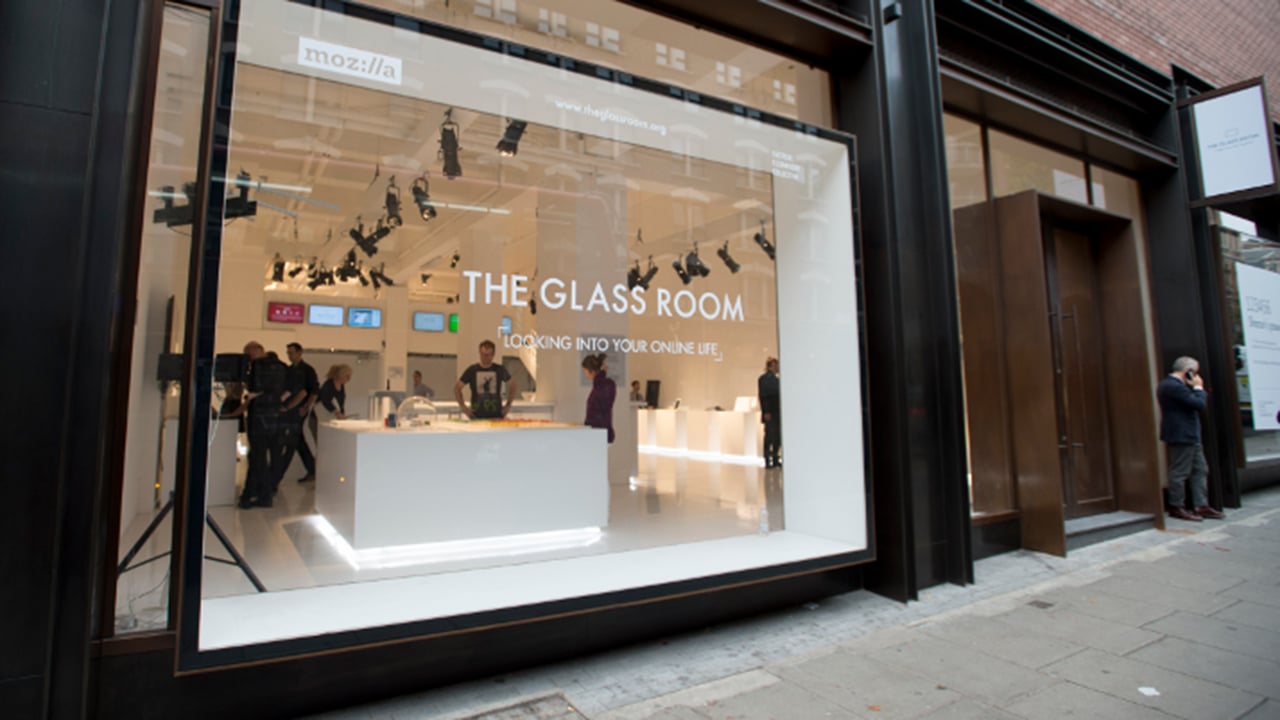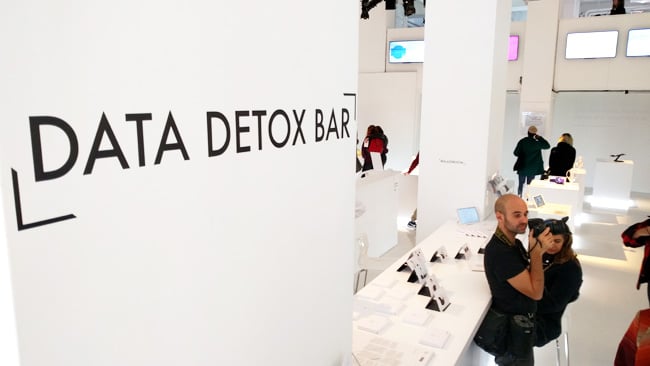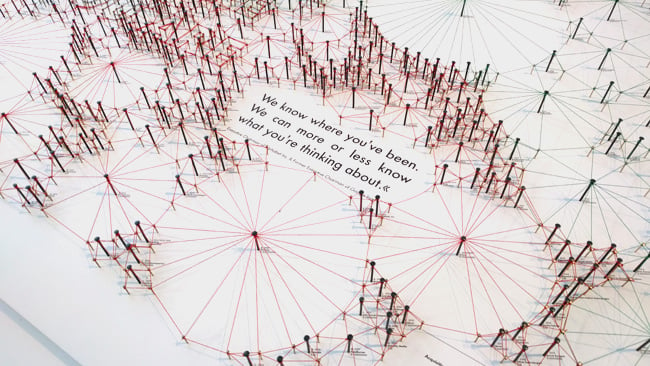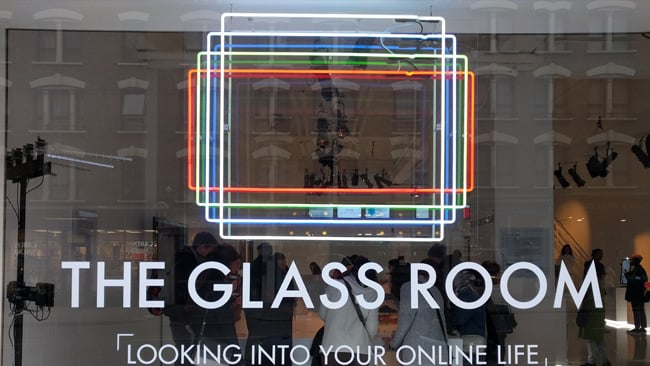
 The Data Detox could be one of the most important things you ever do
The Data Detox could be one of the most important things you ever do
Mozilla and the Tactical Technology Creative have teamed up to show people how they can 'detox' their digital life with a limited time exhibition in London. This could be one of the most important articles you read this week.
Anyone taking a stroll down London's Charing Cross Road, south of where it crosses Shaftesbury Avenue, might be mistaken for having assumed that a particularly hipster-oriented new consumer electronics store had opened. And that's the idea, to some extent: 69 to 71 Charing Cross Road is currently occupied by The Glass Room, a pop-up exhibition produced by Mozilla (the web browser people) and curated by nonprofit Tactical Technology Collective, which addresses issues of privacy and security and how they interact with certain aspects of modern technology. There are exhibits which hover on the border between infographic and 3D artwork, and anyone who's ever blanched at an Apple price tag will be particularly amused by the way the people working behind the counter are referred to as the “Ingenius team.”

The 'Ingenius's' at the Detox Bar
Based on the first half-minute impression, the exhibition appears to be about two things: first, the increasing amount of information that's being recorded about everyone, and second, the degree to which that information is being made available to large organisations to search and analyse. To some extent, we're victims of our own success: it's impossible to overlook the benefits wrought by instant access to information, the availability of satellite mapping and navigation, near-universal contactability and availability of media. Whether the layers on top of that, things like the automatic tagging of photographs with their location and, or the analysis of who's in the photograph are universally a positive development... well, that's still an idea which has good uses, but stuff that information into a collection of huge databases and it becomes both powerful and dangerous.

This web of coloured cotton strands represents the way in which fragments of information can be joined up. Spot the hidden message
There are several reasons we're discussing this here. First, it's almost impossible to overstate at least the potential concerns raised by what we might call the second and subsequent generations of the information age. Anyone with a cellphone and an email address, which I'm going to assume represents most of the readership, needs to be aware that some slightly alarming things are becoming possible even if we eschew the seductive self-promotional possibilities of social media. Giving up on Facebook and Twitter isn't nearly enough; it's now possible to synthesise all sorts of conclusions from almost-public data, from what we want to buy to whether we're likely to be a criminal. The potential to dig dirt and apply pressure to people is, also, unmatched.
Particularly, anyone involved in any sort of investigative journalism needs to be extremely careful. Technology journalism is perhaps less of a target for government, and niche technology journalism such as that aimed at the film and TV industry even less so, but at least a proportion of RedShark's readership is probably involved in news and current affairs where these concerns are very real. The UK, regrettably, now has some of the most permissive laws in the world (let alone in what we might hopefully call the free world) as regards government's ability to intrude into people's private lives, and of course a corporation's ability to do that may be even less well controlled. End-user license agreements are notoriously permissive to the company, but even if not, the ability of the average private citizen to enforce against a company the size of a Google or Facebook is... well...

The Glass Room popup exhibition on London's Charing Cross Road runs until November 12
These are the concerns that the Glass Room exhibition looks to publicise, and that's a good idea, because the principal issue with all this is the lack of public engagement with the problem. Perhaps typically, the last set of legislation on this in the UK passed with barely a whimper because very few people have a sufficiently good understanding of what data mining can do. By putting up public displays showing what data we're leaking and what information we're putting into huge, unknowable databases, the problem is given a public face that's persuasive and engaging and makes people much more sympathetic to the words of concerned tech-industry pundits who've been dragged into a news studio to provide balance during a debate on the subject.
Unfortunately, because we didn't hear about it soon enough, there's only a few days to have a look – the exhibition runs until November 12, but the organisers are keen for everyone to know that their data detox kit, an eight-day program designed to help people control their exposure to the risks of a connected society, can be downloaded from the Tactical Technology Collective website.
Tags: Technology


Comments